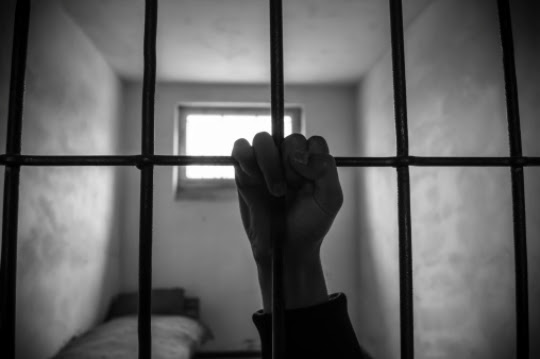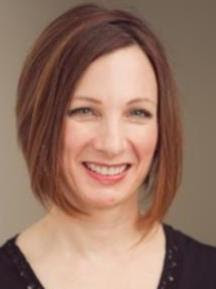Faith-Based Prisons: More Religion Equals Less Crime? — Brad Stoddard
The State Penitentiary in Angola, Louisiana, recently made headlines because it hosts an in-house seminary that offers a two-year associate degree in Pastoral Ministries and a four-year bachelor’s degree in Theology
By Brad StoddardDecember 19, 2013
 The State Penitentiary in Angola, Louisiana, recently made headlines because it hosts an in-house seminary that offers a two-year associate degree in Pastoral Ministries and a four-year bachelor’s degree in Theology. The curriculum includes a variety of courses such as Greek, Hebrew, and “sidewalk ministry,” where inmates learn techniques for ministering to fellow inmates.
The State Penitentiary in Angola, Louisiana, recently made headlines because it hosts an in-house seminary that offers a two-year associate degree in Pastoral Ministries and a four-year bachelor’s degree in Theology. The curriculum includes a variety of courses such as Greek, Hebrew, and “sidewalk ministry,” where inmates learn techniques for ministering to fellow inmates.
The seminary is the latest element in a larger transformation inside Angola that has spanned several decades. When budget cuts in the mid-1990s threatened to end vocational and G.E.D. programs, the warden asked the New Orleans Baptist Theological Seminary to open the seminary inside the prison.
Roughly twenty years later, the seminary has produced almost 250 graduates with approximately ninety offenders enrolled in the program at any given time. Most graduates are Christian, but fifteen Muslims have also graduated. Based on the college’s purported success, Texas has implemented a similar program and several other states are also considering in-prison seminaries.
Partnerships between religion, government, and prison are rapidly increasing. Florida is in the vanguard of this movement. Currently, its Faith and Character Based Residential Program operates in sixteen prisons and dorms. (“Character-Based” functions as the secular counterpart to “Faith-Based”—a balance required by the Supreme Court’s interpretation of the U.S. Constitution.) These correctional facilities offer inmates a variety of options for religious and secular programming. According to one study, inmates from over 110 different religions have participated.
The secular programming includes classes such as financial management, computer literacy, parenting, anger-management, and other courses designed to help inmates adjust to life after prison. The religious programming includes various religious services, study groups for members of individual religions, substance abuse programs, and many other faith-based programs.
Supporters of faith-based corrections argue that the state should accommodate in-prison religious programming for the following reasons: it promotes a moral code that will reduce recidivism, it increases inmate morale, it teaches inmates self-discipline, it can ease the state’s strained financial coffers by relying on volunteers to deliver faith-based programming, and because, quite simply, it works. While over half of prisoners released from “traditional” prisons will return to prison within three years, recidivism rates in faith-based programs are reportedly as low as 13%.
Critics of faith-based prison programs are skeptical of these claims. They argue that faith cannot be isolated as the variable that reduces recidivism since faith-based prison programs are highly selective. By allowing only the best-behaved inmates (who already have the lowest rates of recidivism) to participate, faith-based programs may be creating the impression that there is a strong correlation between religious programming and low recidivism rates.
Critics also argue that any program that shows compassion to inmates and helps prepare them for life after prison will necessarily reduce recidivism. Secular programs are more desirable, they hold, because they can achieve similar results without breaching the healthy separation between religion and state.
In addition, critics are concerned about the constitutionality of faith-based prison programs that favor religiosity over secularity or that disproportionately favor certain religions over others. After all, they ask, if religious programming is the only option or the best option for inmate rehabilitation, is this not an unconstitutional endorsement of religion?
What do the courts say about faith-based prison programs? Generally, the U.S. Supreme Court has repeatedly ruled that partnerships between religion and government are permissible when participation is voluntary, when the primary purpose of the resulting programs is secular, when these programs include both religious and secular options, and when the partnerships do not result in “excessive government entanglement” with religion. This suggests that the Supreme Court might uphold the constitutionality of prison programs that are pluralistic in nature and that include both secular and religious options.
Whether we agree or disagree with faith-based prison programs, they are showing no signs of disappearing. Quite the contrary, faith-based corrections are increasingly attractive because they promise to reduce overcrowded prison populations at little or no cost to the state.
Perhaps more poignantly, they resonate with the ethos of accommodation that, today, dominates public policy debates. Proponents of accommodation argue that the government cannot adequately solve social problems (such as crime) without the moral and spiritual fiber that only religion can provide; hence, the government must welcome religion into the public square.
References and Further Reading:
Eckholm, Erik. "Biblie College Helps Some at Louisiana Prison Find Peace." New York Times, October 5, 2013. http://www.nytimes.com/2013/10/06/us/bible-college-helps-some-at-louisiana-prison-find-peace.html?pagewanted=1&_r=2&adxnnlx=1382130363-tVzdFWY0hlyhdftPxValQw.
Graber, Jennifer. The Furnace of Affliction: Prisons & Religion in Antebellum America. Chapel Hill, NC: University of North Carolina Press, 2011.
Johnson, Byron R. More God, Less Crime: Why Faith Matters and How It Could Matter More. Wst Conshohocken, PA: Templeton Press, 2011.
Sullivan, Winnifred F. Prison Religion: Faith-Based Reform and the Constitution. Princeton: Princeton University Press, 2009.
Photo Credit: Manuel-F-O / photos.com
 Author, Brad Stoddard, is a doctoral candidate in the Department of Religion at Florida State University. He is currently completing his dissertation on faith-based corrections.
Author, Brad Stoddard, is a doctoral candidate in the Department of Religion at Florida State University. He is currently completing his dissertation on faith-based corrections.
 Editor, Myriam Renaud, is a Ph.D. Candidate in Theology at the University of Chicago Divinity School. She is co-organizing a conference, April 9-11, 2014: "God: Theological Accounts and Ethical Possibilities," at the Divinity School (mainly funded by the Marty Center, free to the public). For more information, visit: http://divinity.uchicago.edu/god-theological-accounts-and-ethical-possibilities.
Editor, Myriam Renaud, is a Ph.D. Candidate in Theology at the University of Chicago Divinity School. She is co-organizing a conference, April 9-11, 2014: "God: Theological Accounts and Ethical Possibilities," at the Divinity School (mainly funded by the Marty Center, free to the public). For more information, visit: http://divinity.uchicago.edu/god-theological-accounts-and-ethical-possibilities.

